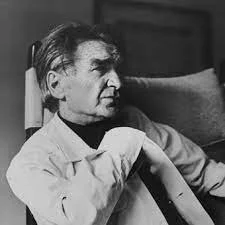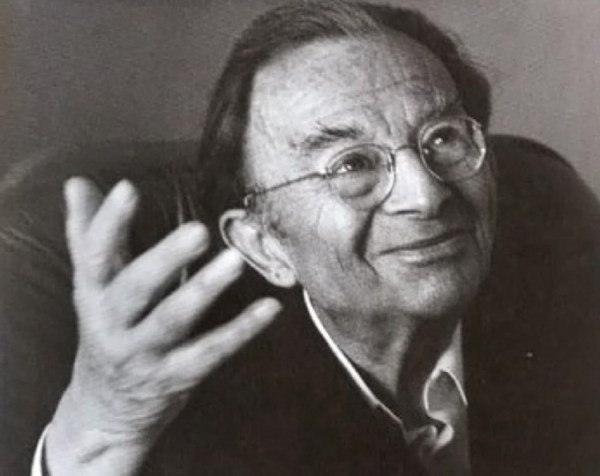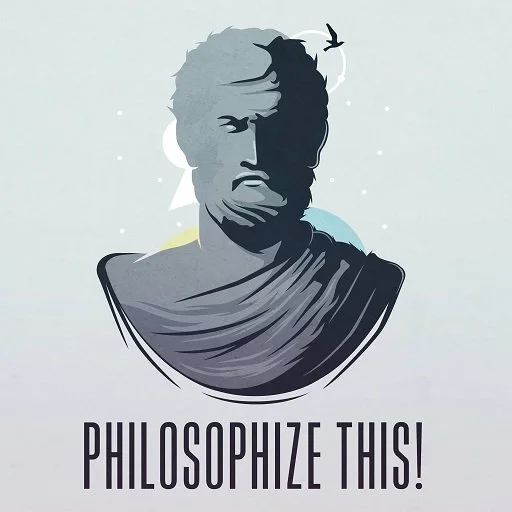Episode #157 - The Creation of Meaning - Simone De Beauvoir
The Creation of Meaning - Simone De Beauvoir
This episode explores the tension between meaninglessness and meaning-making, drawing on the ideas of Emil Cioran and Simone de Beauvoir. While Cioran confronts the absence of objective meaning with a philosophy of intellectual honesty and absurdity, de Beauvoir challenges both escapist optimism and nihilistic surrender by framing meaning as something created within the ambiguity of existence. The episode examines how existential discomfort drives both personal creativity and philosophical systems, often leading thinkers to overemphasize one side of a binary—subject or object, individual or group, freedom or limitation—at the expense of the other. De Beauvoir argues for embracing this ambiguity as the only honest ground for creating values, urging individuals to take responsibility not only for their own subjectivity but also for the freedom of others. Through this lens, the creation of meaning becomes a continuous, uncertain, but essential task of ethical existence.
Further Reading:
The Trouble with Being Born by E.M. Cioran (2013)
The Ethics of Ambiguity by Simone de Beauvoir (2018)
Start Making Sense: How Existential Psychology Can Help Us Build a Life That Matters by Jonathan Haidt (2025)
See the full transcript here.
Thank you to everyone who makes this podcast a possibility in the future.
I could never do this without your support! :)
Episode #156 - Emil Cioran pt. 2 - Failure and Suicide
Emil Cioran pt. 2
This episode continues the exploration of Emil Cioran’s thought, focusing on his relationship to writing, failure, and suicide—not as abstract concepts, but as lived experiences. Cioran wrote not to convince or instruct, but to endure, using writing as a deeply personal form of therapy that gave shape to the chaos of life. His fragmentary style reflects this intent, resisting traditional structure in favor of emotional honesty. Central to the discussion is Cioran’s view of failure—not as something to avoid, but as a profound and revealing force. He saw failure as more honest than success, a reflection of who we truly are, and a constant companion that shapes the way we live and make decisions. The episode also examines Cioran’s treatment of suicide, not as a call to action but as a conceptual freedom that made life more bearable. In both themes, Cioran encourages us to stop running from what makes us uncomfortable and instead face it directly, suggesting that only by doing so can we begin to understand what it means to be human in an absurd world.
Further Reading:
On the Heights of Despair by E. M. Cioran (1996)
The Trouble with Being Born by E. M. Cioran (2013)
Tears and Saints by E. M. Cioran (1998)
See the full transcript here.
Thank you to everyone who makes this podcast a possibility in the future.
I could never do this without your support! :)
Episode #155 - Emil Cioran Pt. 1 - Absurdity and Nothingness
Episode 155 - Emil Cioran Pt. 1 - Absurdity and Nothingness
Emil Cioran’s work confronts the unsettling realities of human existence, focusing on suffering, absurdity, and the emotional weight of being conscious in a seemingly indifferent world. Rejecting traditional philosophy, religious consolation, and rational systems, he presents life as a series of unresolved contradictions rather than a problem to be solved. His writing style—fragmented and aphoristic—reflects a belief that attempts to explain away despair only distance us from the truth of lived experience. Rather than deny or distract from feelings like dread, melancholy, or failure, Cioran sees value in acknowledging them as universal parts of being human. His reflections suggest that meaning cannot be imposed or reasoned into existence, and that by facing the discomfort of existence directly, people may find a quiet kind of connection—not through answers, but through shared recognition of life’s underlying absurdity.
Further Reading:
On the Heights of Despair by E. M. Cioran (1996)
The Trouble with Being Born by E. M. Cioran (2013)
Tears and Saints by E. M. Cioran (1998)
See the full transcript here.
Thank you to everyone who makes this podcast a possibility in the future.
I could never do this without your support! :)
Episode #154 - Pragmatism and Truth
Pragmatism and Truth
This episode introduces the core ideas of pragmatism by tracing how philosophers like Charles Sanders Peirce and William James responded to the crisis of certainty in modern thought. As traditional paths to truth—such as solipsism, foundationalism, and the correspondence theory—began to break down, pragmatists proposed a new way forward: defining truth not as a fixed essence or correspondence to reality, but as a process grounded in human action and communal inquiry. Truth, for the pragmatists, is what proves itself useful over time—what people collectively converge on through experience and experimentation. The episode also explores James’s view of free will and how personal temperament shapes our relationship with truth and meaning. Through the lens of healthy-mindedness and sick-souled awareness, James presents a pluralistic understanding of religious experience and emphasizes the power of belief in shaping our reality—arguing that in a world without certainty, our actions and intentions help bring truth into being.
Further Reading:
Pragmatism: A New Name for Some Old Ways of Thinking by William James (1907)
Pragmatism as a Principle and Method of Right Thinking: The 1903 Harvard Lectures on Pragmatism by Charles Sanders Peirce (1997)
The Metaphysical Club: A Story of Ideas in America by Louis Menand (2001)
See the full transcript here.
Thank you to everyone who makes this podcast a possibility in the future.
I could never do this without your support! :)
Episode #153 - The Frankfurt School - Walter Benjamin Pt. 2 - Distraction
Episode 153 - The Frankfurt School - Walter Benjamin Pt. 2 - Distraction
This episode continues the exploration of Walter Benjamin’s ideas by examining how technological advancements transform human perception, storytelling, and political life. It traces the historical shift from oral traditions—communal, variable, and reflective—to the solitary focus of the novel, and eventually to the mass-reproducible, fast-paced distractions of film and video. Benjamin’s analysis highlights how modern media changes not only the form of art but also how people engage with it: moving from deep concentration to habitual distraction. These new sensory and technological conditions shape collective subjectivity, reinforcing dominant ideologies while diminishing the capacity for critical reflection. The episode connects these ideas to the rise of fascism, the commodification of art, and the erosion of meaningful communication, ultimately suggesting that as media mediates more of our lives, the ability to share authentic experience becomes increasingly difficult.
Further Reading:
The Work of Art in the Age of Its Technological Reproducibility, and Other Writings on Media — Walter Benjamin (2008)
Reflections: Essays, Aphorisms, Autobiographical Writings — Walter Benjamin (1978)
Walter Benjamin: A Critical Life — Howard Eiland and Michael W. Jennings (2014)
See the full transcript here.
Thank you to everyone who makes this podcast a possibility in the future.
I could never do this without your support! :)
Episode #152 - The Frankfurt School - Walter Benjamin Pt. 1
Episode 152 - The Frankfurt School - Walter Benjamin Pt. 1
Walter Benjamin’s early work explores how modern technology has profoundly altered the way people experience art, identity, and reality. Beginning with his essay The Task of the Translator, Benjamin argues that translation is not merely about making a text accessible, but about preserving the deeper, almost spiritual essence of the original—a task bound up with the nature of art itself. He emphasizes that true art exists independently of its audience and retains a unique “aura” rooted in time, place, and presence. But this aura is threatened by technologies like photography, which make images infinitely reproducible while stripping them of their uniqueness. Benjamin traces this loss through the shift from painting to photography and ultimately to mass media, where everything—including people—can be commodified and endlessly copied. The result, he warns, is a cultural moment where individuality and aesthetic depth are flattened, and old methods of critique no longer suffice. His work sets the stage for a new way of understanding how technological reproduction reshapes not just art, but human perception and selfhood.
Further Reading:
The Work of Art in the Age of Mechanical Reproduction by Walter Benjamin (1936)
Walter Benjamin and the Work of Art by Andrew E. Benjamin (2005)
The Work of Art in the Age of Its Technological Reproducibility, and Other Writings on Media by Walter Benjamin (2008)
See the full transcript here.
Thank you to everyone who makes this podcast a possibility in the future.
I could never do this without your support! :)
Episode #151 - The Frankfurt School - Erich Fromm on Freedom
Erich Fromm on Freedom
This episode continues the exploration of Erich Fromm’s work by turning to his 1941 book Escape from Freedom, where he investigates a troubling paradox of modern life: after centuries of fighting for individual autonomy, many people now feel more isolated and anxious than ever. Drawing a parallel between personal development and human history, Fromm likens the journey from ancient unity with nature to modern individuality to the growth of a child into adulthood—gaining freedom, but also the burden of self-responsibility. The episode explores how this “individuation” has created unprecedented negative freedom (freedom from external constraints), but without a corresponding sense of positive freedom—spontaneous, self-directed connection to the world—people may retreat into authoritarianism, destructiveness, or blind conformity. These escape strategies, though offering security, ultimately sacrifice individuality. Through historical context and psychological insight, the episode highlights Fromm’s core concern: that unless we learn how to embrace freedom meaningfully, we risk surrendering it entirely.
Further Reading:
Conformity: The Power of Social Influences by Cass R. Sunstein (2019)
Freedom Beyond Sovereignty: Reconstructing Liberal Individualism by Sharon R. Krause (2015)
The Dynamic Individualism of William James by James O. Pawelski (2007)
See the full transcript here.
Thank you to everyone who makes this podcast a possibility in the future.
I could never do this without your support! :)
Episode #150 - The Frankfurt School - Erich Fromm on Love
Erich Fromm on Love
In this episode, the discussion centers on Erich Fromm’s view of love as explored in The Art of Loving. Fromm argues that the fundamental human problem is a sense of existential separateness, and that love—understood not as a fleeting emotion but as an active faculty—is the only meaningful answer to this condition. The episode critiques how modern capitalist society encourages transactional relationships, where people treat themselves and others as commodities to be consumed. Fromm challenges this model by redefining love as an art—one that requires humility, courage, faith, and discipline to master. Rather than something that happens passively, real love is portrayed as an intentional act of giving that fosters growth, freedom, and connection, rooted in one’s capacity to love both others and oneself.
Further Reading:
The Art of Loving – Erich Fromm (1956)
Love and Will – Rollo May (1969)
All About Love – bell hooks (2000)
See the full transcript here.
Thank you to everyone who makes this podcast a possibility in the future.
I could never do this without your support! :)
Episode #149 - On Media Pt. 2 - Marshall McLuhan
Marshall McLuhan
This episode introduces the media theory of Marshall McLuhan, who argued that technologies and mediums are not just tools we use, but extensions of ourselves that shape how we perceive the world and understand what it means to be human. Drawing from McLuhan’s favorite metaphor—Poe’s “Descent into the Maelström”—the discussion frames modern life as a kind of vortex in which people must study the patterns around them to navigate change. McLuhan viewed media not in terms of content, but in terms of their broader cultural effects—how they alter the scale, pace, and patterns of human experience. The shift from oral to literate societies, and now to an electric, interconnected world, dramatically changes how we communicate, think, and live. He famously argued that “the medium is the message,” emphasizing that the form of media impacts us more profoundly than the information it carries. As society moves toward what he called a “global village,” McLuhan’s work challenges us to remain conscious of the hidden forces shaping our lives.
Further Reading:
Understanding Media: The Extensions of Man – Marshall McLuhan (1964)
The Medium is the Massage: An Inventory of Effects – Marshall McLuhan and Quentin Fiore (1967)
The Global Village: Transformations in World Life and Media in the 21st Century – Marshall McLuhan and Bruce R. Powers (1989)
See the full transcript here.
Thank you to everyone who makes this podcast a possibility in the future.
I could never do this without your support! :)
Episode #148 - On Media Pt. 1 - Manufacturing Consent
Manufacturing Consent
This episode explores how modern media functions not simply as a source of information, but as a powerful intermediary that filters and shapes public perception. Drawing on the work of Noam Chomsky, Edward Herman, and Walter Lippmann, it presents the idea that media operates less like a truth-telling institution and more like a system designed to maintain existing power structures. The discussion centers on the concept of media as a “medium”—an environment that influences how impressions are formed—raising questions about who controls this environment and why. Through historical examples like wartime propaganda and anti-labor strategies, the episode outlines how media has been used to manufacture public consent by limiting the boundaries of acceptable discourse. Chomsky and Herman’s five filters—ownership, advertising, sourcing, flack, and fear—are introduced as the mechanisms that guide what stories are told and how they’re framed. Ultimately, the episode encourages a reevaluation of how beliefs are shaped in a media-saturated world.
Further Reading:
Manufacturing Consent: The Political Economy of the Mass Media by Edward S. Herman and Noam Chomsky (1988)
Media Control: The Spectacular Achievements of Propaganda by Noam Chomsky (2002)
Public Opinion by Walter Lippmann (1922)
See the full transcript here.
Thank you to everyone who makes this podcast a possibility in the future.
I could never do this without your support! :)
Episode #147 - Being and Becoming
Being and Becoming
The episode explores the debate between being and becoming, showing how philosophers like Heraclitus, Nietzsche, and Whitehead challenge fixed ideas of identity by emphasizing change and process. It critiques reductionist science and language, arguing for a view of reality as dynamic, interconnected, and always evolving.
Further Reading:
Process Philosophy: A Survey of Basic Issues by Nicholas Rescher (2000)
Process-Relational Philosophy: An Introduction to Alfred North Whitehead by C. Robert Mesle (2008)
Process and Reality by Alfred North Whitehead (1929)
See the full transcript here.
Thank you to everyone who makes this podcast a possibility in the future.
I could never do this without your support! :)
















